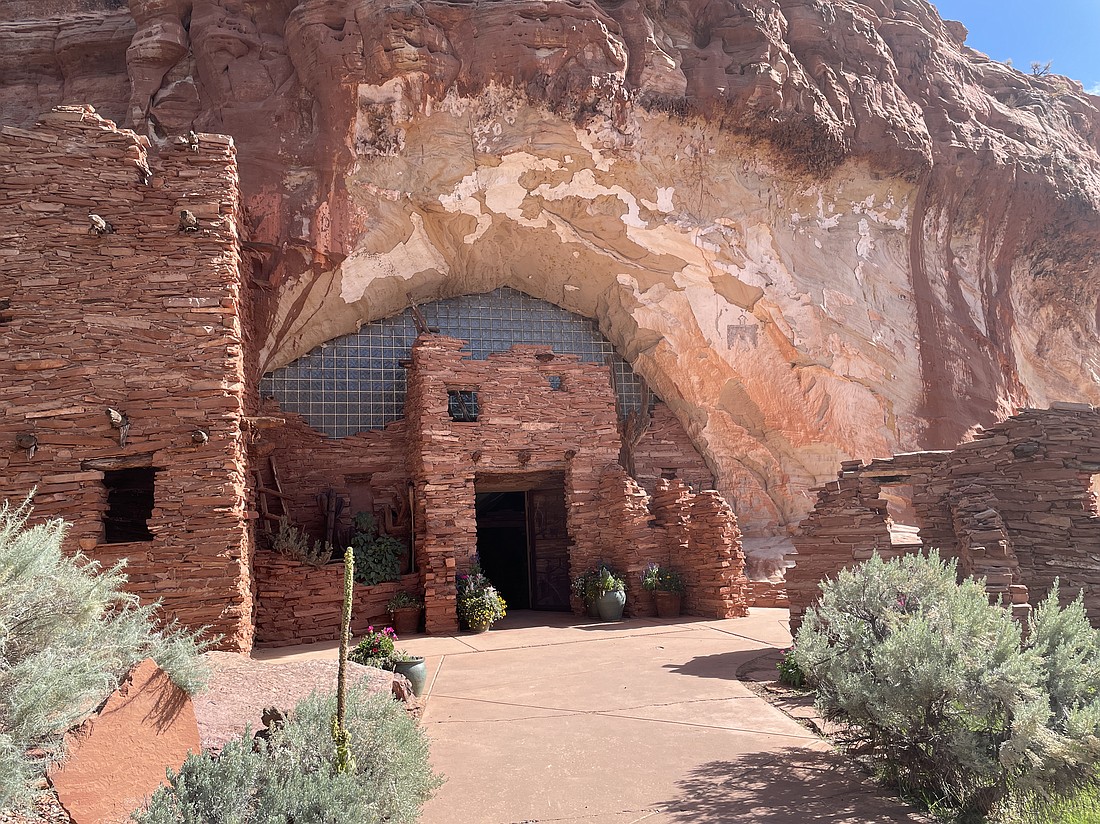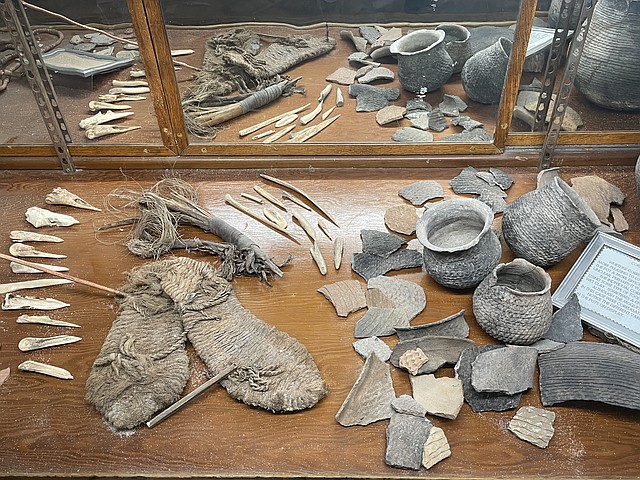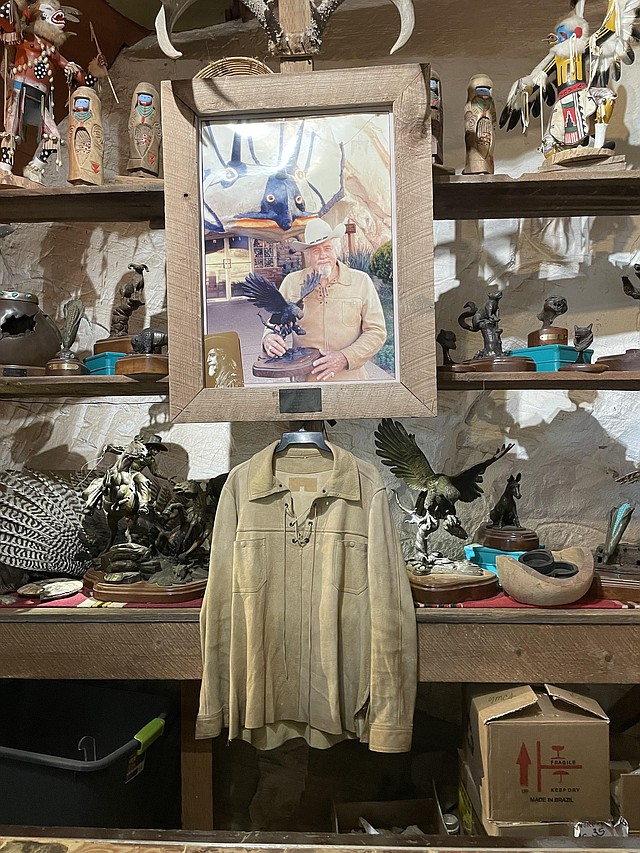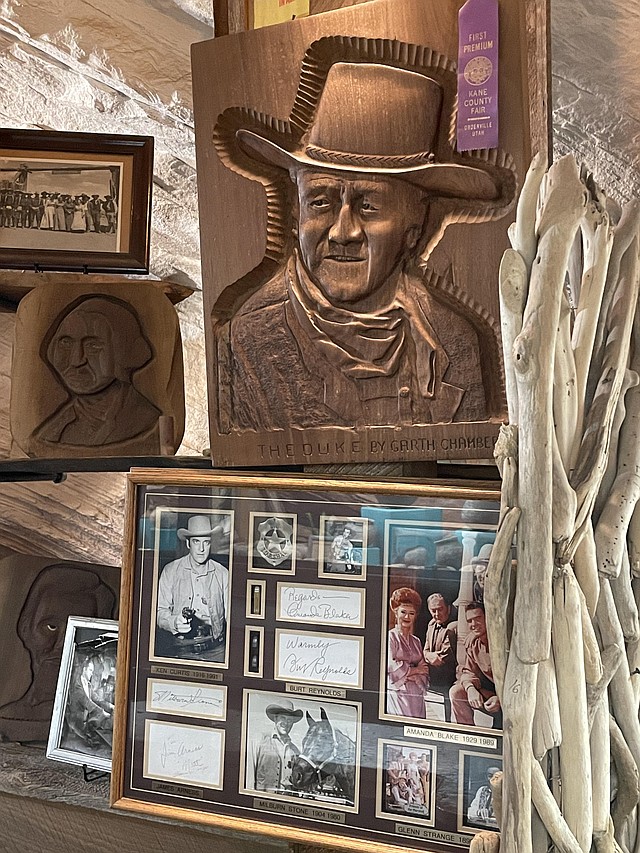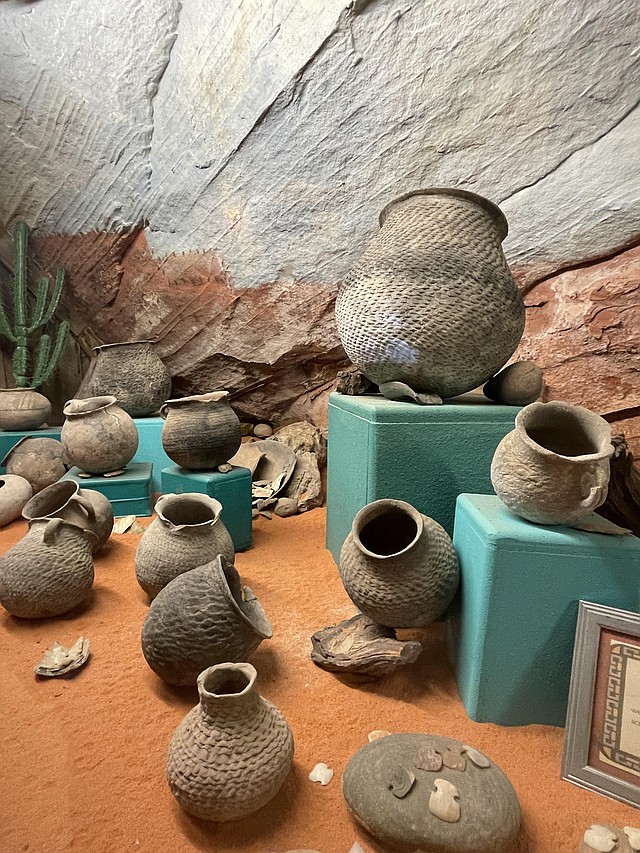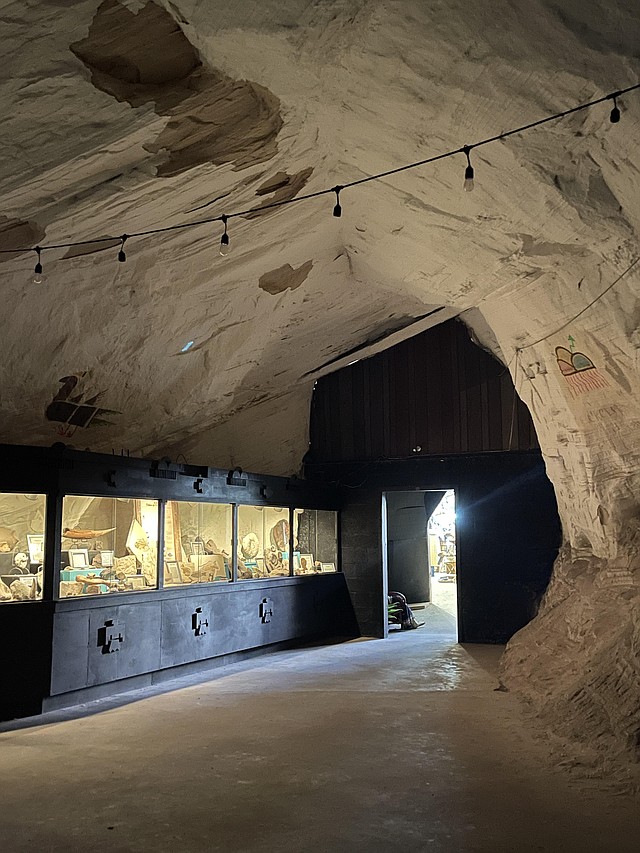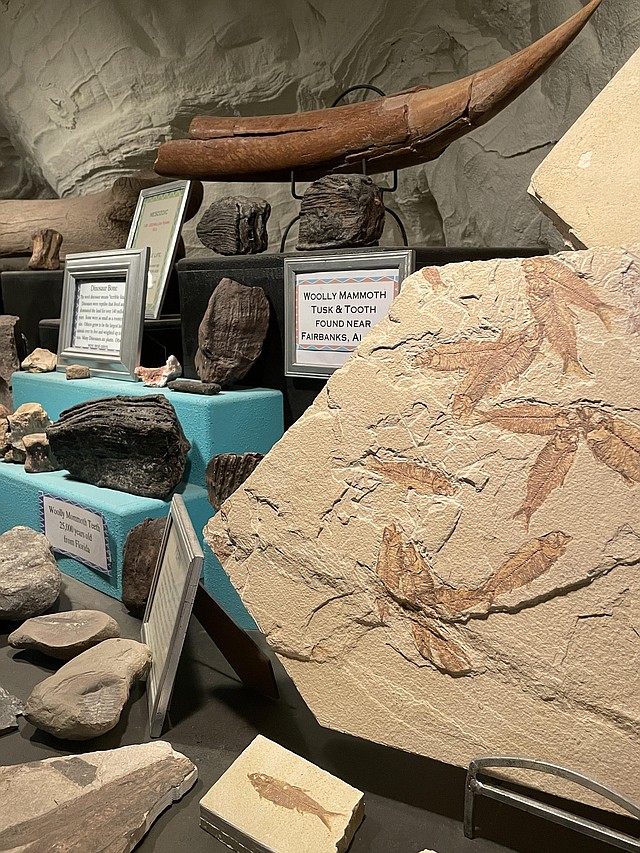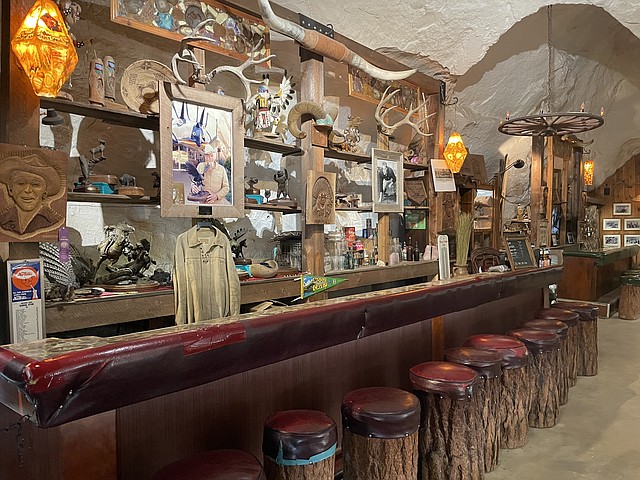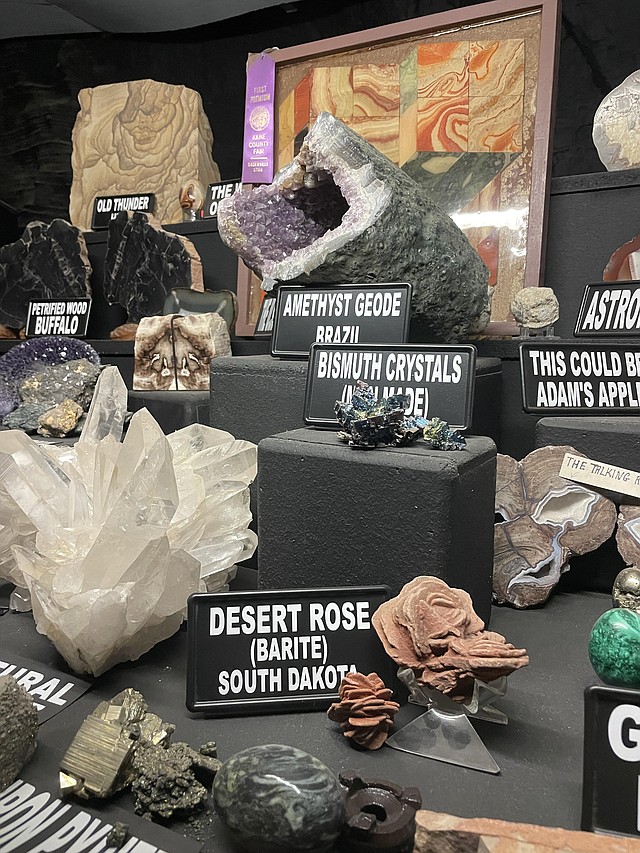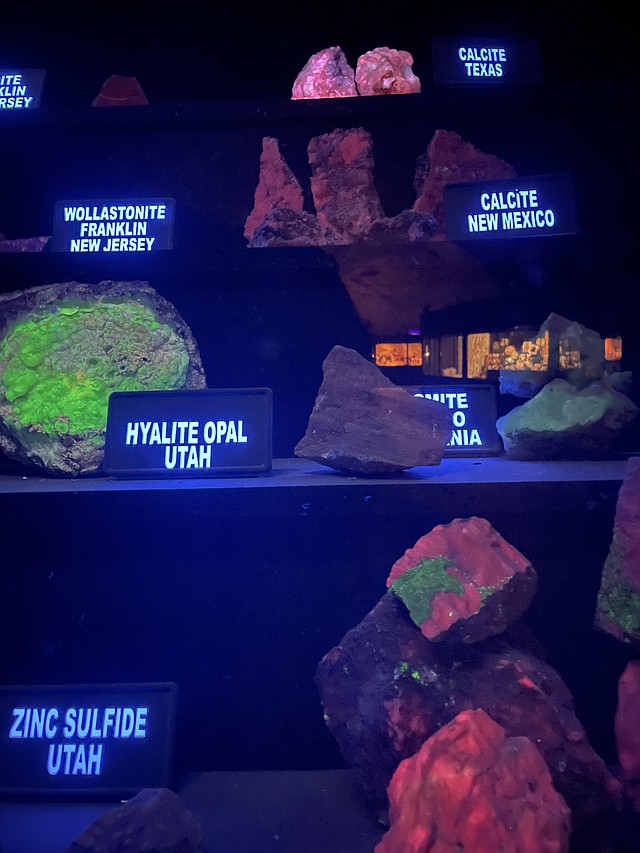I’m drawn to quirky roadside attractions and find they often make fun places to take a break and get off the highway. If a road trip through the Southwest is in your plans, make sure to check out Moqui Cave. Located six miles north of Kanab, Utah and about thirty minutes from the east entrance of Zion National Park, this unusual landmark is worth a stop.
Moqui, which is an ancient term, is now commonly used to refer to the Hopi tribe of Native Americans that inhabited the region which includes parts of Arizona and Utah. The cave is a natural sandstone formation that historically was used by the Anasazi people as a place to shelter and store food. Later, in the 19th century, white settlers made it into a speakeasy during the Prohibition Era. Then in 1951, Garth and Laura Chamberlin purchased the cave.
Garth envisioned creating a unique tourist attraction in the region and revamped the cave to include a stage and a tavern. Moqui became known as Southern Utah’s first dance hall, where people came for a meal, a drink and to listen to a live band on weekends. It was the hot place for social gatherings, to see and be seen, and attracted big name movie stars who were filming Westerns on location in the area.
Utah’s “Little Hollywood” attracted the likes of Jack Palance, John Wayne, Clint Eastwood, Robert Mitchum, James Caan and Clark Gable. And the list of T.V. shows and movies made in Kanab is a long one with such titles as “The Lone Ranger,” “Death Valley Days,” “Gunsmoke,” “”El Dorado,” “The Man Who Loved Cat Dancing, “The Desperados” and “The Outlaw Josey Wales,” to name just a few.
Having grown up in Southern Utah, Garth, though, had always been fascinated by the history that surrounded the region. It led him to study geology, archaeology and paleontology in college, and spurred his passion for collecting ancient artifacts and geological items. After amassing a sizeable cache over the years, he began thinking of creating a museum where he could display his finds and share them with others.
Eventually, the couple shut down the dance hall and converted the four-room cave into a museum, and Garth’s dream became a reality. Though Garth has since passed away, his legacy is alive and well, as members of the Chamberlin family continue to run and operate the cave today.
Within this natural history museum, you’ll find a host of treasures, including Native American artifacts, some dating back as far as 1,200 years ago, and an impressive collection of pre-Columbian items from Mexico. Among the items are ceremonial points, jugs, bowls, pots and tools. There’s also a large assortment of dinosaur tracks, most of which were found within a ten to fifteen mile radius of the cave, plus over 1,000 arrowheads and numerous fossils.
One of the rooms is the tavern, featuring a handsome wooden bar, circa 1952, which was handmade by Garth. Surrounding it is a collection of early pioneer antiquities, artwork and a cash register, over 140 years old, still in use today. Of note is “The Duke,” a woodcarving of John Wayne, also made by Garth, that won first place in the Kane County Art Fair. And take a look at the autographed photos by stars Burt Reynolds, James Arness, Ken Curtis, Glenn Strange and Amanda Blake.
Walk through a small teepee and you’ll be in what used to be the dance hall. I imagined what the space might have been like back then - a lively scene of folks showing off their best moves to music from a live band, the sounds bouncing off the cave walls. The stage is still there, but now it contains a dazzling, fluorescent desert landscape centerpiece.
For more luminosity, you’ll find cases of colorful minerals in a connected side room. The minerals naturally glow when put under ultraviolet light. This is one of the largest fluorescent mineral displays in the U.S. with rocks from all over the country and around the world represented.On the way out, stop in the gift shop and peruse the many items for purchase, including Native American arts and crafts, rugs, pottery and of course, turquoise jewelry.
www.moqui-cave.com
Debbie Stone is an established travel writer and columnist, who crosses the globe in search of unique destinations and experiences to share with her readers and listeners. She’s an avid explorer who welcomes new opportunities to increase awareness and enthusiasm for places, culture, food, history, nature, outdoor adventure, wellness and more. Her travels have taken her to nearly 100 countries spanning all seven continents, and her stories appear in numerous print and digital publications.
